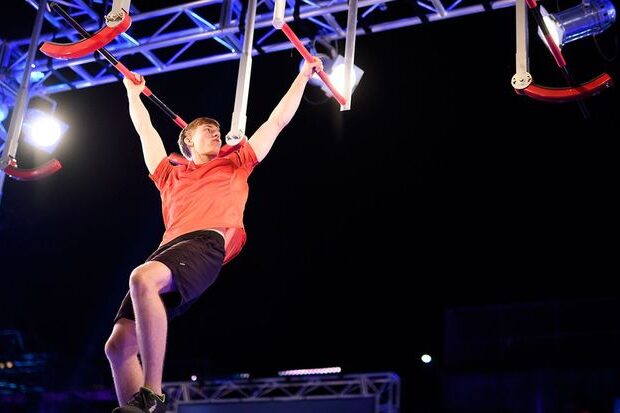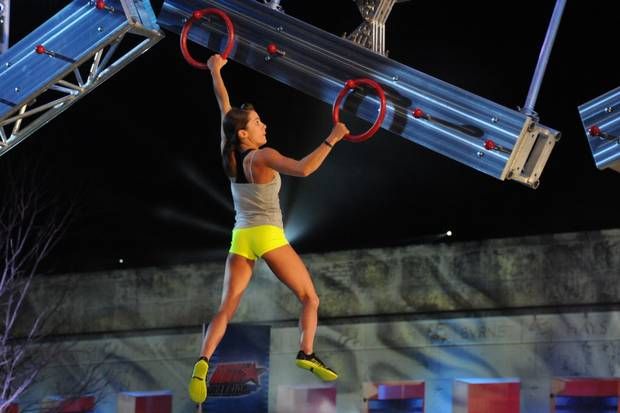1. What “American Ninja Warrior” Teaches

This competition challenges ordinary people to complete insane obstacle courses using strength, balance, and mental focus. Beyond athletic feats, it’s a blueprint for how persistence, strategy, and preparation can help us overcome life’s obstacles, literally and figuratively. What makes the show powerful is that many competitors are not professional athletes but everyday people—teachers, parents, firefighters—who train relentlessly to chase a dream. The course becomes a stage for resilience, creativity, and problem-solving under pressure. It shows that setbacks are part of the journey, that community support fuels progress, and that mental toughness is just as vital as physical skill. Most importantly, it reminds us that success often comes not from one giant leap, but from countless hours of practice, small improvements, and the courage to keep trying after failure.
2. Small Wins Add Up

Contestants on “American Ninja Warrior” don’t become great overnight. Many train for years, focusing on small improvements, mastering one grip, strengthening core muscles, or refining balance. These small victories add up and eventually make huge challenges possible. In real life, this lesson reminds us that progress doesn’t need to be dramatic to matter. Whether it’s saving money, learning a new skill, or building healthier habits, consistent effort compounds over time. The course shows us that rushing often leads to mistakes, but steady growth sets the foundation for success.
3. Strength Isn’t Everything

While the competitors look incredibly fit, raw strength alone doesn’t guarantee success. The obstacles often reward clever techniques, problem-solving, and efficiency of movement. For example, knowing when to conserve energy or how to swing effectively can mean the difference between finishing and falling. This applies outside the arena too, life’s challenges often demand more than brute effort. Smart planning, creativity, and adaptability can help us succeed where force alone falls short. It’s a reminder that thinking strategically is just as important as working hard.
4. Adapt When Plans Fail

On the course, even the best athletes miss a grip, slip on a landing, or mistime a swing. What sets great competitors apart is how quickly they recover. Instead of giving up, they refocus and adjust mid-course. That adaptability mirrors what’s needed in everyday life, whether at work, school, or home. Plans often don’t go perfectly, and setbacks can happen suddenly. The key is shifting gears, problem-solving in the moment, and moving forward rather than letting failure stop progress.
5. Focus on Balance

Many of the most nerve-wracking obstacles involve narrow beams, spinning logs, or wobbly platforms that demand incredible balance. Competitors can have world-class strength but still fail if they lose stability. This mirrors the importance of balance in daily life, not just physically but emotionally and mentally. Handling stress, maintaining priorities, and staying calm in high-pressure moments all require balance. Just as ninjas train to steady themselves on shaky ground, we can practice finding calm and perspective when life feels unstable.
6. Practice Under Pressure

Competitors know that training in a gym is very different from performing on the big stage, where lights, cameras, and nerves add pressure. That’s why many simulate competition stress during practice, preparing their minds and bodies for the real thing. It’s a lesson for anyone facing interviews, presentations, or tough conversations, practice in conditions that mimic the real challenge. By putting ourselves in “pressure rehearsals,” we build resilience and confidence, so when it’s time to perform, the stress doesn’t throw us off course.
7. Learn From Setbacks

One of the biggest truths about “American Ninja Warrior” is that almost everyone fails, often multiple times, before finally making progress. Even the top competitors fall into the water again and again while learning new skills. Instead of treating failure as the end, they see it as feedback. This mindset applies everywhere. Whether it’s a business idea that doesn’t take off or a personal goal that takes longer than expected, setbacks teach us where to improve. The key is not avoiding failure but using it as a stepping stone toward eventual success.
This story 7 Lessons from “American Ninja Warrior” for Everyday Life was first published on Daily FETCH


